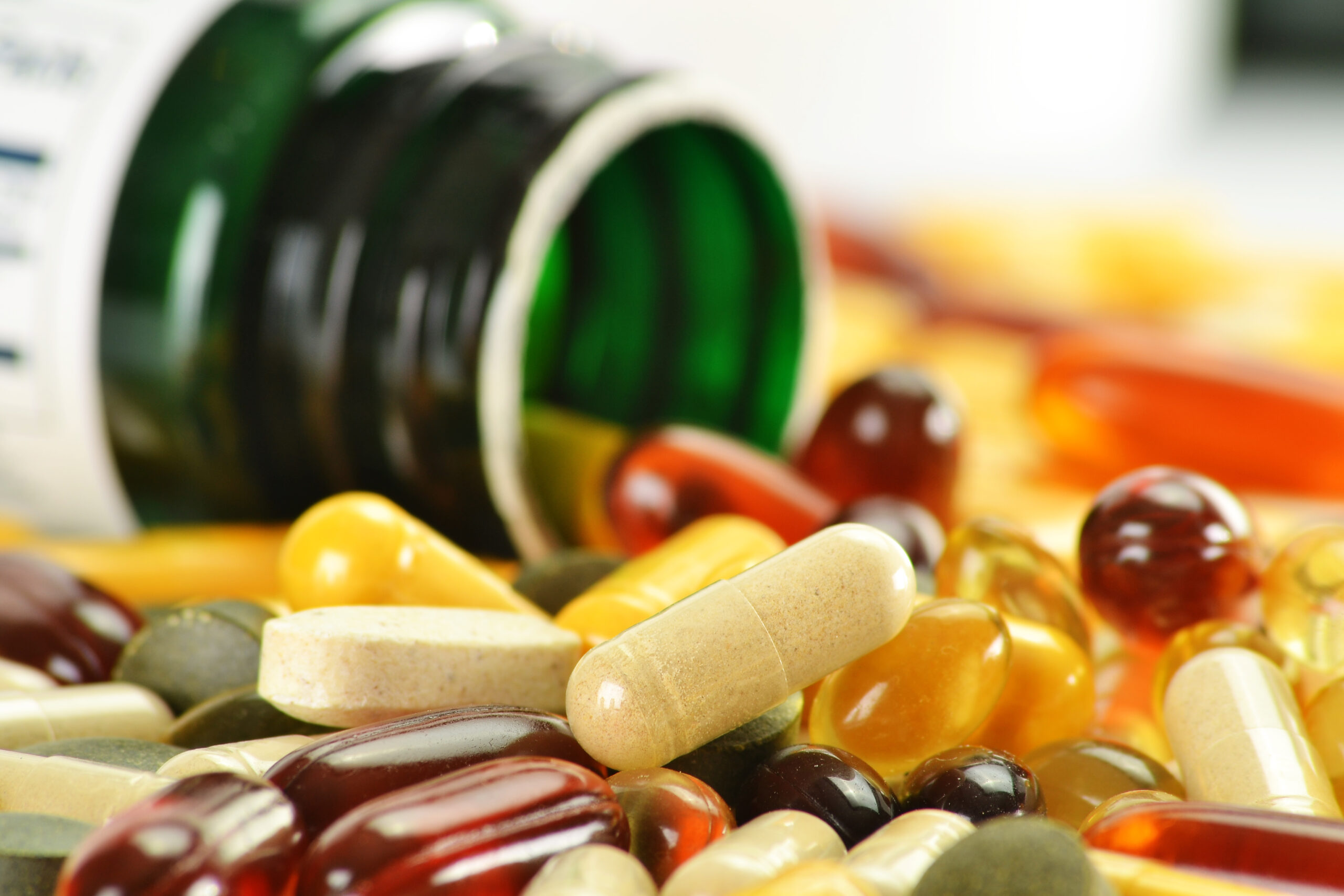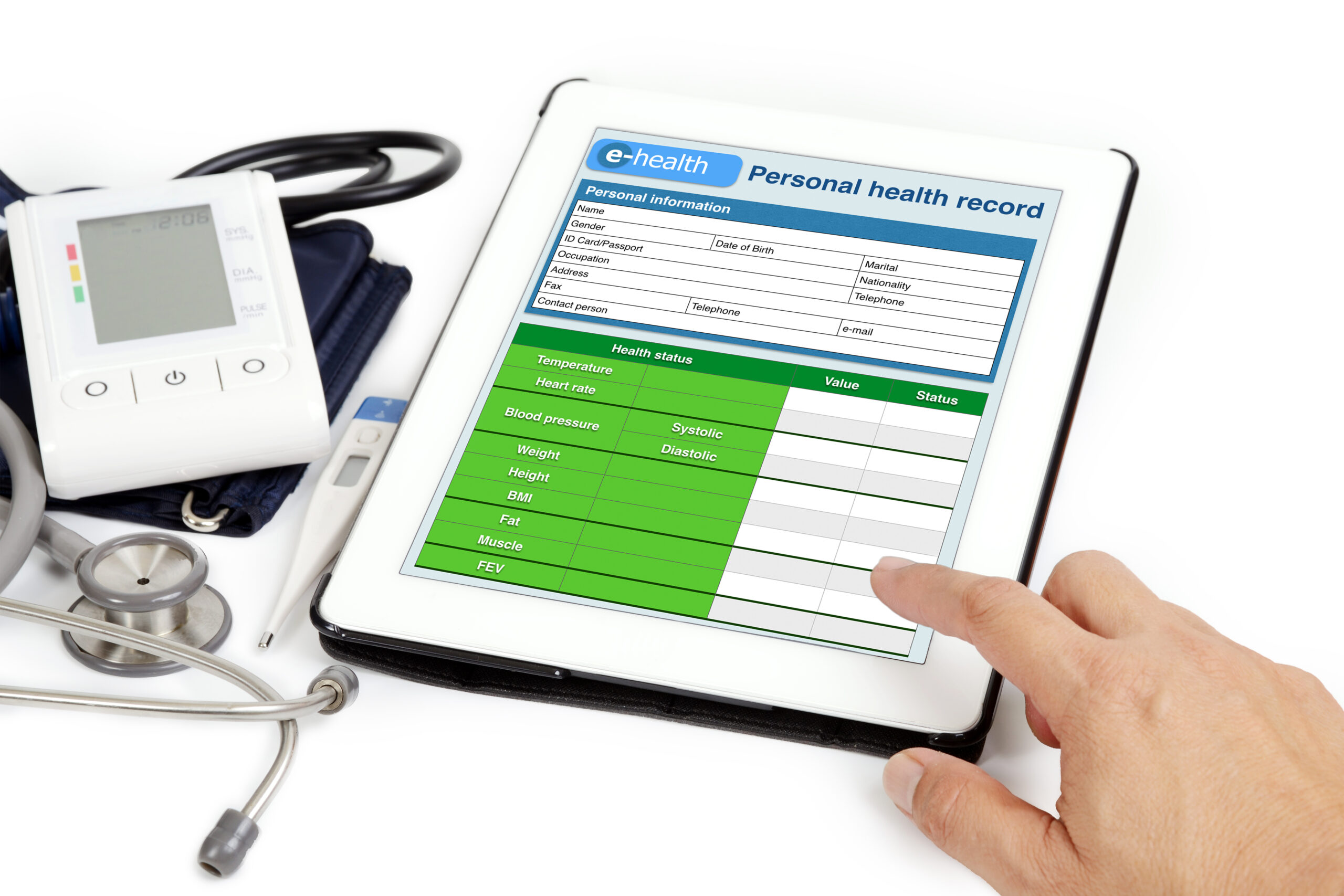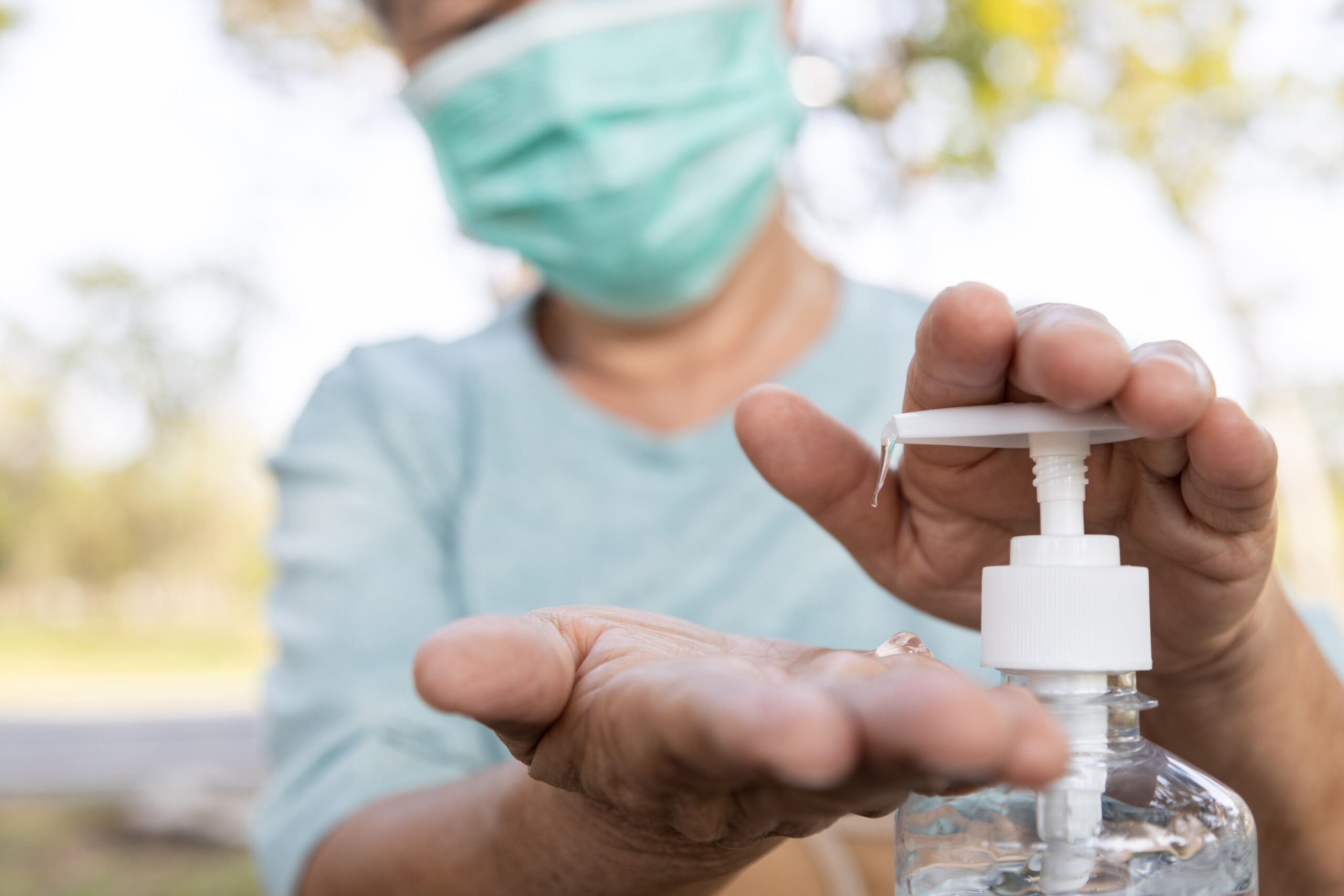Now live! RTHM Direct – simplified medication access for Long COVID, ME/CFS and related conditions. Check it out
As holiday travel and family gatherings approach, it’s crucial to prepare not only for COVID-19 but also for the flu and RSV. These respiratory illnesses tend to surge during the winter months, making it essential to include comprehensive preparations in your holiday planning. Creating a preparedness kit for COVID-19, flu, and RSV will help you reduce the risk of infection, manage symptoms effectively, and protect your loved ones. The RTHM team has compiled a comprehensive kit filled with tools to help you stay safe and healthy this holiday season, ensuring you can enjoy your time with family and friends while minimizing health risks.
What Your Emergency Kit Needs
The idea behind an Emergency Kit is to have the necessary medications and supplements to address the SARS-CoV-2 virus, flu virus and RSV if or when you test positive. Once positive, you may not be feeling well, so having these items ahead of time is important.
RTHM has created this recommended kit based on the experience of Co-Founder Dr. Jennifer Curtin and on literature, clinician experience, and the different theories of Long COVID derived from existing research, such as microclots and platelet activation, viral persistence, and autoimmunity.
Recommended Items for Your Emergency COVID Preparedness Kit – Click on an item in the list above to be directed to the science behind each item below.
- COVID Tests
- Paxlovid – Prescription required from your provider – follow dosage recommendations
- Metformin – Prescription required from your provider or through RTHM Direct – follow dosage recommendations
- H1-Blockers – Antihistamines – Allegra, Zyrtec, Claritin, or Xyzal – 1 tablet twice per day
- H2-Blockers – Antihistamines – Famotidine (Pepcid) – 40mg twice per day
- Baby Aspirin – counteracts platelet activation often seen with COVID-19 – Only for adults over age 19 – One tablet a day
- Nattokinase – Natural ability to help break down fibrin and address potential clot formation seen with COVID and Long COVID – Talk with your doctor if on blood thinners – 1 capsule twice per day or as directed
- N-Acetyl-L-Cysteine (NAC) – Supports mitochondrial health through the production of glutathione – 1 capsule twice per day
- Curcumin – Natural polyphenol with antioxidant and anti-inflammatory properties that can help to reduce symptoms – 1 capsule twice per day or as directed
- Multivitamin with D3 – Helps ensure vitamin and mineral levels are adequate to support a healthy immune system – 1 capsule per day
- Melatonin – Helps with sleep, natural immunity, and inflammation in the body – one lozenge before bed
- Alpha Lipoic Acid – Helps to regulate tachycardia that can occur with COVID-19 and Long COVID – 500-1000 mg up to twice daily as tolerated – take with food.
Click on the order button below to purchase many of the supplements from the above list at a 10% discount through Fullscript and also access dosage recommendations.
While many of the recommended products are available through RTHMs COVID Preparedness Kit, other items require local purchase of a prescription from your provider. To ensure you have all the necessary tools in place to help minimize your symptoms with an acute COVID infection and reduce your risk of Long COVID, download our PDF Checklist HERE.
Don’t Face the Next COVID Surge Unprepared
While it seems as if many people have put COVID in the rearview mirror, the fact is it is still very much here, with new variants making rounds on a regular basis. While acute infections do not necessarily have the same severity and mortality rate as they did at the start of the pandemic, the risk of severe infection is still there, as is the risk of developing the life-changing complex chronic condition known as Long COVID.
Our goal here at RTHM is to provide you with the tools to help reduce your risk of infection while also being prepared if you do become infected. This COVID Preparedness Kit provides the tools to help you combat an acute infection while also helping to reduce your risk of Long COVID.
The Science and Information Behind the Acute COVID Preparedness Kit
COVID and Flu Tests
Testing is an essential part of your COVID, Flu and RSV preparedness kit, as a positive test is often necessary for treatment protocols. If you still have COVID-19 home tests from previous waves, be sure to check the expiration date. The FDA has provided a list of expiration extensions for tests you may already have. Check this list before discarding any tests you may have. Also, when taking a home test, always take a picture of your positive result in order to access antivirals and other medication or in the event you do develop Long COVID. Now, many home tests allow you to test for both COVID-19 and the Flu.
In addition to at-home test kits, other testing options can include:
- On-site testing search
- Labcorp Pixel home Covid19 PCR test kit for flu and COVID-19 that ships to your house (covered by most insurances)
- Home service that will send someone to come test you (and the entire household if needed) for COVID-19
PLEASE NOTE: Some people take a long time to test positive, or they never do, so act/treat yourself as if you have COVID-19 if you had a known or suspected exposure and you have symptoms, regardless of whether your test is positive.
Medications
Medications like antivirals are available after you test positive for COVID-19. However, it is important to know about the medicines available and talk with your primary care physician about the possibility of these medications should you test positive. You can often have a prescription in your file for when you test positive.
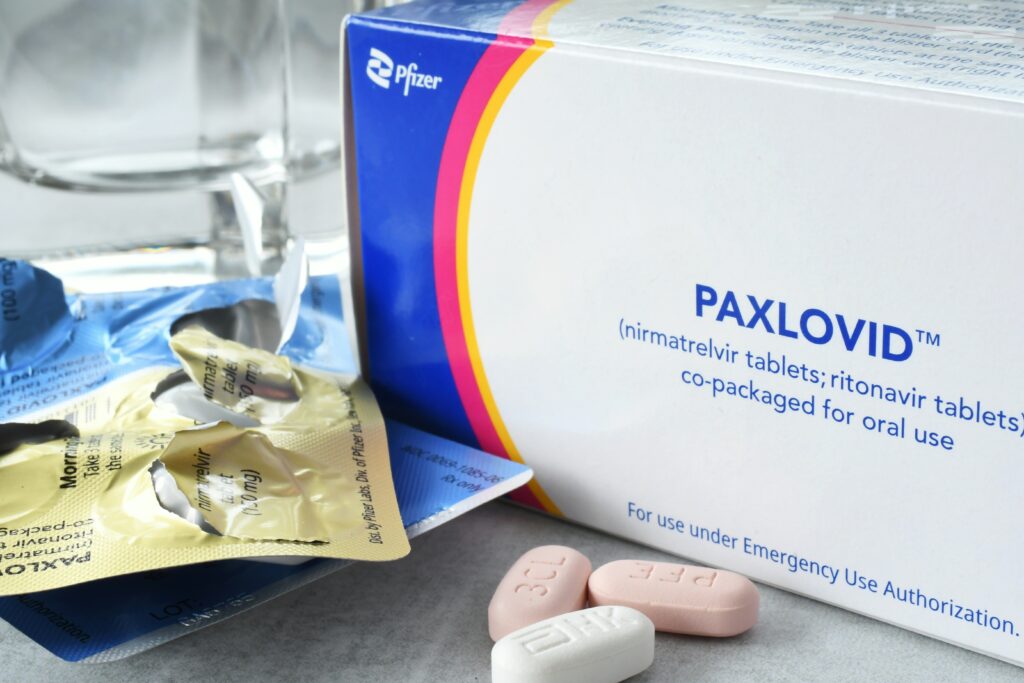
Paxlovid
Paxlovid is an oral antiviral medication that works by inhibiting the replication of the SARS-CoV-2 virus, which causes COVID-19. It is a combination of two antiviral drugs: nirmatrelvir and ritonavir. Nirmatrelvir is the primary agent that blocks the activity of the SARS-CoV-2-3CL protease, an enzyme the virus needs to replicate. Ritonavir, on the other hand, slows down the breakdown of nirmatrelvir, thereby increasing its levels in the body and enhancing its effectiveness.
Paxlovid is typically prescribed to individuals who have tested positive for COVID-19 and are at risk of developing severe symptoms. It is most effective when started within five days of symptom onset. In clinical trials, Paxlovid was found to be about 89% effective at preventing COVID-related hospitalization and death.
Paxlovid has quite a few possible side effects. It requires reduced dosing for people with kidney disease and interacts with a lot of medications. Please check with your provider/pharmacist before taking it.
Please Note: If you are prescribed Paxlovid, there is a risk of rebounding after stopping the 5-day course. If your prescribing clinician is open to it, consider having them put one refill on your Paxlovid prescription so you can get another round IF you experience rebound symptoms after completing the first course of Paxlovid.
Metformin
Metformin is an FDA-approved antidiabetic agent used to manage high blood sugar levels in patients with type 2 diabetes. It works by reducing glucose absorption from the intestines, lowering liver glucose production, and improving insulin sensitivity. This medication is often recommended alongside dietary changes and exercise for better results. In addition to its primary use for diabetes, metformin has been studied for its potential benefits in other areas, such as weight loss, cardiovascular health, and even life extension.
In terms of COVID-19, early studies like this randomized-blinded study, show that metformin may reduce your risk of Long COVID by as much as 40 percent. However, new data presented in October 2024 at the Infectious Disease Week Annual Meeting showed a 53% reduction in Long COVID when metformin was prescribed within the first week of SARS-CoV-2 infection. This medication does require a prescription, so it is a good idea to talk with your primary physician ahead of time to see if they are open to prescribing it in the event you test positive.
If you currently have acute COVID or would like to have metformin in your COVID Kit before you test positive, visit RTHM Direct to get your metformin prescription.
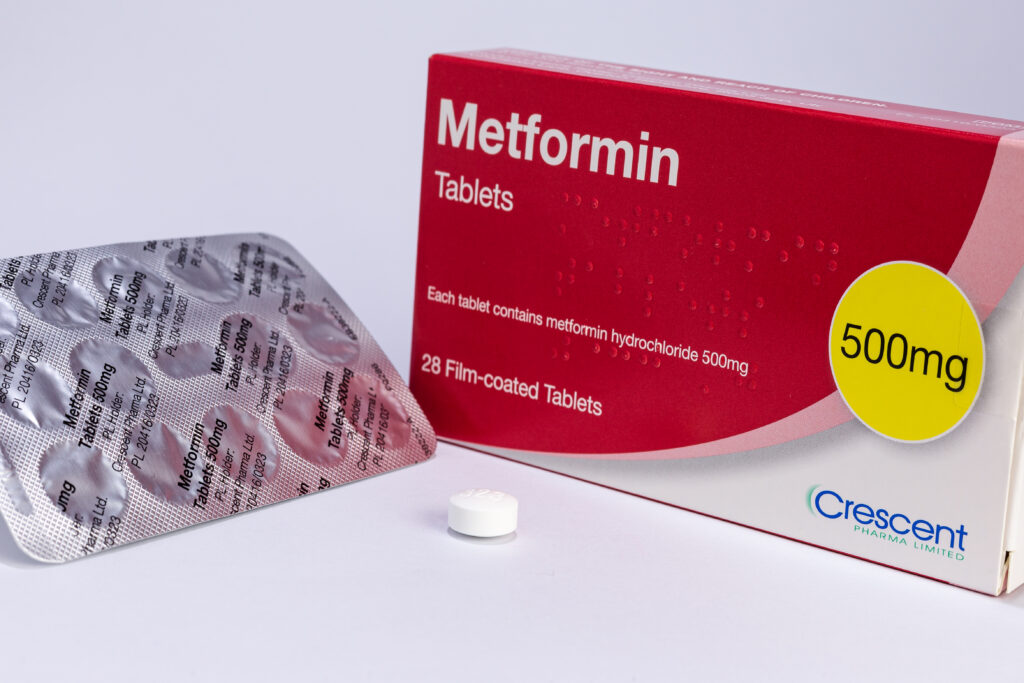
Over-the-counter Medications and Supplements
Over-the-counter medications and supplements play a vital role in your acute COVID-19 recovery, as well as reducing your risk of Long COVID. While you are likely to recognize many of these medications and supplements, here we explain the science behind their benefits. Some can be acquired at your local Walmart or drugstore while others are available through RTHM’s Acute COVID Preparedness Kit through FullScript and can be ordered and delivered directly to your home. Dosing recommendations for these supplements can also be found in the Fullscript list.
H1 Blockers
H1 blockers, also known as H1 antagonists, are a class of medications that selectively bind to but do not activate histamine H1 receptors, thereby blocking the actions of histamine. Histamine is a substance in the body that has various effects, including the dilation of blood vessels, contraction of smooth muscle, and stimulation of gastric acid secretion. It plays a significant role in the immune response, particularly in allergic reactions.
A retrospective analysis of 84 elderly patients treated with either cetirizine 10mg twice daily or Loratadine 10mg twice daily (or a 3rd type of antihistamine) PLUS azithromycin and gargling with baking soda in water appeared to reduce hospitalizations and mortality in a high-risk population.
The combo of twice daily doses of both famotidine and an H1-blocking antihistamine (cetirizine, loratadine, fexofenadine, etc.) is also standard treatment for mast cell activation syndrome. Mast cells and eosinophils have been found to be activated in COVID-19 and other viral infections.
Examples of H1-blocking antihistamines include Allegra, Zyrtec, Claritin, and Xyzal. These can be purchased over the counter at places like Walmart, Costco, or online.
Antihistamines are safe, relatively inexpensive, and over the counter, and given we are trying to primarily prevent Long COVID with this supplement stack, we believe they are worth trying unless contraindicated.
H2 Blockers
H2 blockers, also known as H2 receptor antagonists, are a class of medications that reduce the production of stomach acid. They work by blocking histamine type 2 receptors on the cells that produce gastric acid. This decreases the amount of acid the stomach makes, relieving symptoms of acid reflux and gastroesophageal reflux disease (GERD).
A physician-sponsored cohort study found that a combination of Histamine-1 and Histamine-2 receptor blockers (cetirizine and famotidine) resulted in beneficial reductions in inpatient mortality and symptom progression in COVID-19 patients. The combo of twice daily doses of both famotidine and an H1-blocking antihistamine (cetirizine, loratadine, fexofenadine, etc.) is also standard treatment for mast cell activation syndrome.
Examples of H2 blockers include ranitidine (Zantac), famotidine (Pepcid), cimetidine (Tagamet), and nizatidine (Axid). These medications are available both over the counter and by prescription.
Baby Aspirin
Aspirin, or acetylsalicylic acid, is a medication used to treat pain, fever, or inflammation. It is classified as a nonsteroidal anti-inflammatory drug (NSAID) and works by inhibiting the production of prostaglandins, substances in the body that cause inflammation, pain, and fever. Aspirin is also used in low doses (75-325 mg daily) as an antiplatelet agent to prevent blood clots in patients at risk of heart disease or stroke.
A recent review found mild mortality and morbidity improvements in those on Aspirin during acute COVID vs. those not taking it, with minimal risk of increased bleeding. The review discusses the ways in which aspirin can potentially be helpful, namely in helping to counteract the platelet activation seen in acute COVID-19 as well as reduce the clotting propensity. Aspirin was determined to be worth using as it is inexpensive, widely available, and safe unless contraindicated due to ulcers, bleeding disorders, or aspirin allergy.
**IMPORTANT: Kids and teens should NOT use Aspirin during flu-like illnesses because they can develop Reye’s Syndrome, which can be very severe. Do not use aspirin if you are allergic or otherwise sensitive to Aspirin or salicylates, are on prescription blood thinners, have a GI ulcer, have a bleeding disorder, or have had recent surgery. Always consult with your healthcare provider before starting or stopping medications and supplements. In addition, women absorb Aspirin in their stomachs and should not use enteric-coated but chewable or sublingual versions. Men can take enteric-coated versions.
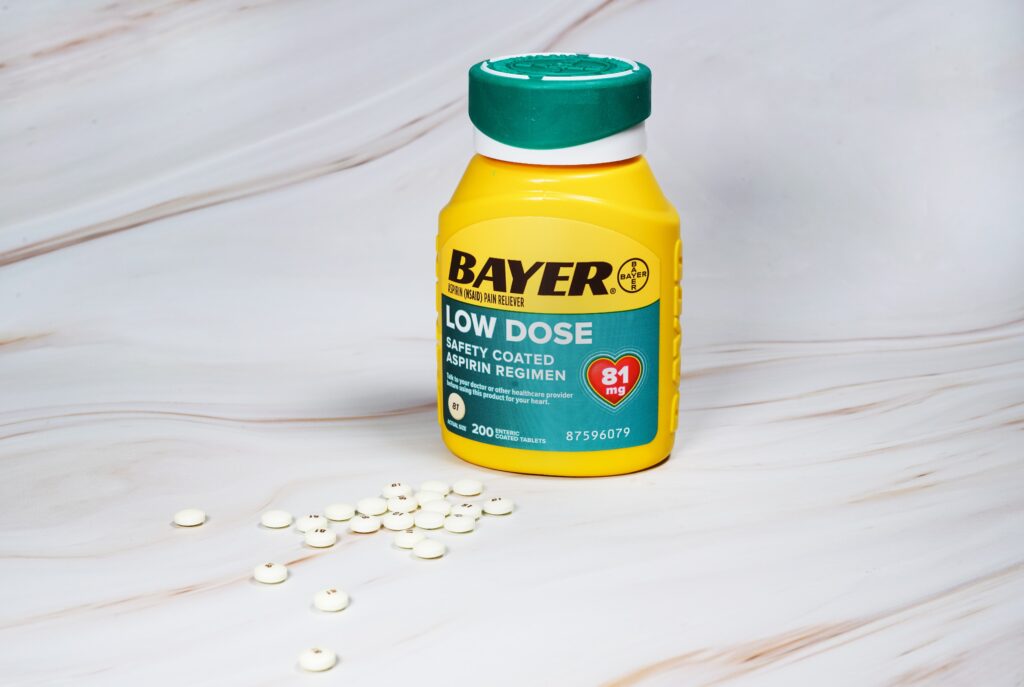
Nattokinase
Nattokinase (NK), also known as subtilisin NAT, is a significant extracellular enzyme produced by Bacillus subtilis natto. It is known for its direct fibrinolytic activity, which means it can break down fibrin, a protein involved in blood clotting. This makes NK a useful agent for oral thrombolytic therapy. It is stable in the gastrointestinal tract and is considered a valuable dietary supplement or nutraceutical.
In terms of acute COVID-19 and Long COVID, misfolded (amyloid) fibrin clumps have been found in the blood of those with Long COVID (as well as diabetes and more) by Dr. Resia Pretorius and colleagues, who have dubbed the amyloid clumps “microclots.” Nattokinase not only helps to break down these fibrin clumps, but this study shows that it also degrades the SARS-CoV-2 spike protein in vitro.
N-Acetyl-L-Cysteine
N-acetyl-l-cysteine (NAC) is a derivative of the naturally occurring amino acid l-cysteine. It is used in various health contexts due to its antioxidant properties and its ability to provide cysteine intracellularly for increased production of glutathione, a powerful antioxidant.
NAC plays a crucial role in replenishing the body’s primary antioxidant, glutathione, which is essential for maintaining mitochondrial health. In the context of Long COVID, where mitochondrial dysfunction is suspected, NAC’s antioxidant properties can help mitigate oxidative stress, a condition that can damage mitochondria and impair their function. Furthermore, NAC, when administered in high doses, can improve situations of oxidative stress, which is often seen in viral infections like COVID-19.
NAC helps break down fibrin and platelet clumps by reducing the aggregation of von Willebrand factor to some degree, and fibrin amyloid microclots and platelet activation have been seen in both acute and Long COVID and elevated Von Willebrand factor (vWF): ADAMST13 have been seen in acute COVID-19 and higher ratios seemed to correlate with kidney injury due to COVID-19.
NAC is actually “on label” as a mucolytic (it thins mucus), so it makes mucus or phlegm easier to cough up out of the lungs or blow out of your nose; helpful for infections that cause congestion in the sinuses, nose, and lungs as is found to occur with many of the acute COVID-19 cases.
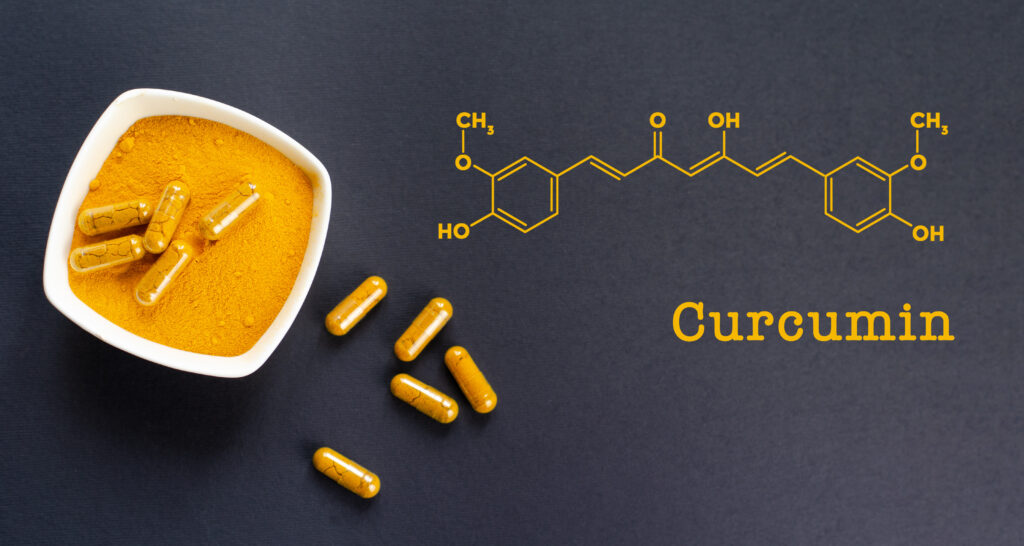
Curcumin
Curcumin is an orange-yellow colored, lipophilic polyphenol substance that is acquired from the rhizomes of the herb turmeric (Curcuma longa), a plant belonging to the ginger family. It is known for its antioxidant, anti-inflammatory, and anticancer effects, and plays an important role in the prevention and treatment of various illnesses ranging from cancer to autoimmune, neurological, cardiovascular diseases, and diabetes.
A review found overall benefits in mortality, reduction of common symptoms, and hospitalization across 6 studies, however recommended that further larger studies with more standardized curcumin formulations be done.
Optional Additions
Multivitamins with Vitamin D3
The idea behind taking a multivitamin with vitamin D3 is to ensure that you are not deficient in any of the key vitamins and minerals that can be key to acute COVID-19 infection and recovery. These include vitamin D, vitamins B1, B2, and B12, zinc, and copper. It is a good idea to start on a multivitamin before COVID-19 exposure.
The multivitamin included in the RTHM Preparedness Kit in Fullscript includes MTHFR-friendly versions of folate and B12.
Low levels of vitamin D are linked to more severe acute COVID-19 infections. Several studies on vitamin D in COVID-19 are summarized nicely in this paper.
Melatonin
Melatonin is a hormone synthesized and secreted primarily by the pineal gland in the brain. It is produced in response to photoperiodic cues relayed from the retina via an endogenous circadian oscillator within the suprachiasmatic nucleus in the hypothalamus. The hormone is involved in regulating the sleep/wake cycle, and other circadian and seasonal rhythms, and acts as an immunostimulator and cytoprotective agent. Melatonin is also involved in signaling the ‘time of day’ and ‘time of year’ to all tissues, thus considered to be the body’s chronological pacemaker. Melatonin is considered the first-line pharmacologic therapy for the treatment of insomnia by the American Academy of Family Physicians (AAFP).
Melatonin supplements help with sleep, immunity, and inflammation! Take the melatonin sublingually (under the tongue) 30-60min before bed. If you feel excessively groggy the next morning, reduce your dose to 1/2 a lozenge (break it in half). If 1 lozenge is not enough to help you sleep, you can take a 2nd one.
Alpha Lipoic Acid
Alpha lipoic acid (ALA) is a naturally occurring compound that acts as a powerful antioxidant in the body. It is produced in small amounts by the body and can also be obtained through dietary sources or as a supplement. ALA has been studied for its potential therapeutic applications in various conditions, including diabetes, cardiovascular disease, neuropathy, and weight loss. It has been shown to have antioxidant, anti-inflammatory, and neuroprotective properties. ALA can scavenge free radicals, regenerate other antioxidants like vitamins C and E, and improve glucose metabolism.
Alpha lipoic acid is recommended if you experience a resting heart rate that is notably higher than your normal rate prior to COVID-19 infection or if you notice that your high rate shoots up high with minimal activity or upon standing. It is possible that taking 600mg of ALA (alpha lipoic acid) 3 times per day right away when you notice the increased heart rate could help reverse the issue (but it has to be taken right away, it’s a very short window of time for it to help, so good to have this on hand ahead of time).

Get updates
Join our mailing list
